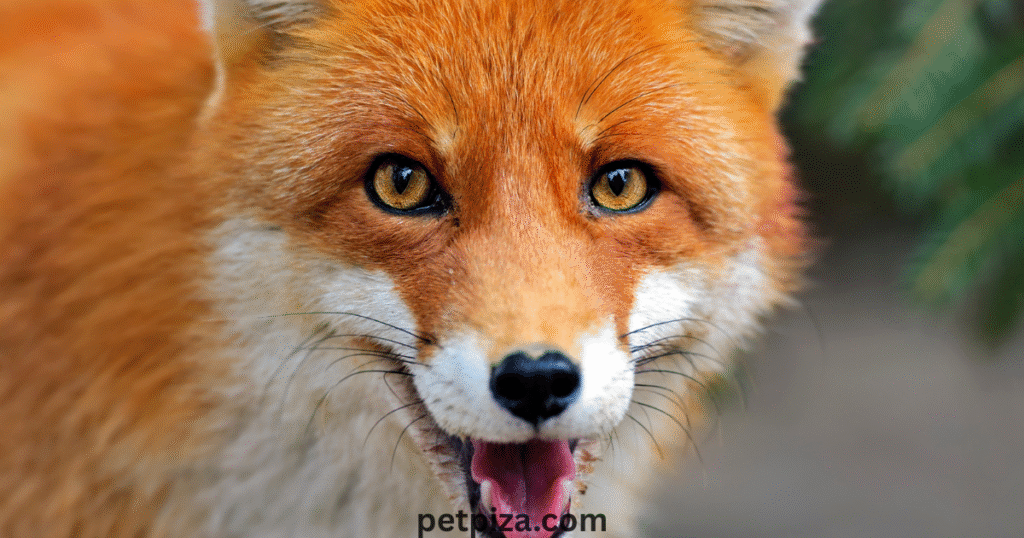The unmatched lure of the wild as companion pet fox for sale. Foxes with their clever eyes and bushy tails flutter in the imagination of man in a way no other animal does. And the more number of people got fascinated by it, the greater was the number that began to consider bringing one home. But the road to owning a pet fox is strewn with complications regarding legalities and specialized types of care.
Before you even search for pet foxes for sale, it becomes extremely important to read about what the actual commitment entails. This guide will inform you about everything you need to know-from which species are famous, their costs, and major responsibilities in caring for exotic animals.
1. Reasons You Should Get a Pet Fox
Choosing a pet fox means allowing yourself the company of someone who is completely different from the usual cat or dog. Their personalities are actually the other major factor in their allure. Foxes are said to be very intelligent, curious, and somewhat hyper. They will bond closely with their owners, and exhibit affection and playfulness.
Unlike dogs, which have been domesticated for several thousand years to live alongside humans, most of their instincts remain intact in the case of foxes. Therefore, they aren’t simply “doglike cats.” They have different communication forms, different social structures, and different needs altogether.
These traits of independence can be rewarding in a pet, but can sometimes be problematic. The kind of foxes commonly kept as pets today include the Fennec, Arctic, and certain strains of domesticated Red Fox, whose temperaments and care vary immensely.

2. The Most Commonly Kept Foxes
Not all species of foxes are suitable for domestication. A handful of particular breeds have gained prominence among exotic animal owners, each possessing its own peculiarities.
Fennec Fox: Most characteristic of the smallest bodies and the largest ears, Fennec foxes, desert-dwellers native to North Africa, are the smallest of all fox species and are energetic and chirpy. Their big ears help dissipate heat while providing extra cooling during the day. With their antics, they exhibit a catlike playfulness. On the other hand, they need a warm environment and are diggers; therefore, you should look for solid ground.
Arctic Fox: Originating from the coldest northern areas, the Arctic fox is famous for its thick warm-white winter coat changing the brown-gray tones in summertime. Arctic foxes are larger than Fennecs and have a more calm but energetic disposition. Their fluffy appearance can be hard not to adore, but they will require a spacious area and climate control to prevent overheating.
Red Fox (Domesticated): The standard Red fox is very intelligent and adaptable. In contrast, feral Red foxes are not ideal house pets, domesticated lines have been bred over the years to decrease fear and aggression in regard to humans. These foxes are generally lively, displaying dog-like behavior, but still, possess instinctual behaviors like a pungent musk odor and territorial marking behavior.
Silver Fox: Although technically not a species in its own right, the Silver fox is a rare color variation of the Red fox. The famous Russian experiment for several decades selectively bred Silver foxes for tameness, resulting in a truly domesticated lineage. These foxes are generally more docile and trainable but are also some of the most expensive and hard to get.
3. Are Pet Foxes Legal?
The one question that has to be answered first and foremost: Can you have a fox where you are? Exotic pet laws can vary wildly by country, state, and sometimes even by city.
The regulation scenario in the United States is a patchwork of confusion.
Some states have a total ban on pet fox ownership, while others allow the ownership of specific species, such as Fennec foxes, but not those that are native, such as the red fox. Even in many states that allow ownership, they require special permits or licenses from a fish and wildlife department or the like. Permit applications usually require facility inspections, criminal background checks, and proof of experience.
It is absolutely critical to check applicable laws in your specific area on keeping a pet fox before considering purchase. The penalties for illegal possession of a fox can be steep fines and confiscation of the beloved pet.

4. What Fox-Buying Expenses Are There?
Keep in mind that buying a fox is a serious financial commitment just begun with the initial cost.
The price for the animal ranges anywhere from $1,500 to above $10,000, depending upon the breed, age of the animal, and the reputation of the breeder. Fennec foxes would generally be on the lower end of that range, while domesticated Silver foxes are pretty much the most expensive.
The extra costs add up really fast:
Enclosure: Foxes are not house cats; they need a large secure outdoor area, which is dig-proof and covered from overhead. You are looking at several thousand dollars here.
Food: Foxes require specialist levels of protein in their diet. The diet usually comprises high-quality grain-free dog food supplemented with taurine, meat, and veggies.
Veterinary Care: Finding an exotic animal vet will usually result in a higher cost than ordinary ones. Costs for standard check-ups, vaccinations, and emergency care will be incurred.
Other hidden expenditures include costs for enrichment items, funds to replace things they may destroy in the house, or damages due to digging and chewing.
5. Where to Find Pet Foxes for Sale
Another step after securing legality and being able to account for the expenses is to look for a respectable source.
Responsible breeders form the best reference. They should maintain a clean and healthy environment for their animals, be competent in the species, and have enough inquiries to determine whether you would be an appropriate owner. They should also provide lifetime support.
Exotic pet shops may have some species of fox; however, while their selection should be studied, their networks must be examined thoroughly.
Online Platforms and Adoption: Although you will find some ads online, use utmost caution. Scams abound, and many unethical breeding mills sell online. Reputable organizations for the rescue of foxes exist but are exceedingly rare. If you locate one, adopting would be a great choice in a rare case.
Note: You should never pay for an animal you have not seen for yourself and so have no idea what it looks like or if it is even alive. Anyone who is rushing you, goes suspiciously low on price, or refuses to show you veterinary records is a seller you should stay far away from.

6. Looking After Your Pet Fox
Your pet fox will require a lot of time and attention.
Diet and Nutrition: Foxes are omnivores with high-protein needs. Their diet should consist of a mix of high-quality commercial food, raw meat, eggs, fruits, and vegetables. Never feed them cat food, as it lacks essential nutrients like taurine.
Housing and Space: An outdoor enclosure is non-negotiable. It must be large enough for them to run and play, with secure fencing that goes deep into the ground and is fully covered to prevent escapes. They also need a den-like shelter within the enclosure.
Exercise and Enrichment: Foxes are intelligent and easily bored. They require daily exercise and mental stimulation through toys, puzzles, and interaction to prevent destructive behavior.
Socialization and Training: While they can be trained to use a litter box and walk on a leash, foxes are not as eager to please as dogs. Training requires immense patience and consistency. They also have a distinct musky odor used for scent marking, which even spaying or neutering may not eliminate completely.
7. The Pros and Cons of Foxes as Pets
By either weighing all the specific pros and cons against one another or reaching the conclusion on either side, this decision should be made.
Pros:
- Unique Companionship: Having a fox as a pet is such a different experience.
- Intelligence and Playfulness: Their cleverness and curiosity can be infinitely entertaining.
- Strong Bonds: Given the proper care, they can prove to be extremely affectionate and loving.
Cons:
- High-Maintenance: They need specialized care, housing, and feeding.
- Legal and Social Roadblocks: Laws and public perception are issues in themselves.
- Odor Woes: Their strong natural musk is for territorial marking.
- The level of destruction: Therein lies their damage potential with respect to digging, chewing, and high energy.

8. Alternatives to Owning a Fox
If the responsibilities of ownership seem too daunting, there are other ways to connect with these incredible animals.
Volunteer at a Fox Sanctuary: Many sanctuaries and wildlife rehabilitation centers need volunteers to help care for non-releasable foxes. This is a great way to interact with them without the commitment of ownership.
Support Exotic Pet Rescues: Donate or volunteer at a rescue that helps rehome exotic pets that were surrendered by their owners.
Visit Wildlife Parks: Observing foxes in a semi-natural, professionally managed environment can satisfy your curiosity and support conservation efforts.

Conclusion
Pet foxes are fascinating, intelligent, beautiful animals that can be excellent companions for the right person. However, they aren’t pets to be taken lightly or regarded as an easy alternative to a dog or cat. They are huge responsibilities demanding careful research, financial stability, and a firm commitment to fulfilling their complicated needs.
Before you take the leap, honestly assess whether your lifestyle, home, and finances can accommodate such a demanding animal. If you are ready to take on the challenge and have completed your research, seek a reputable breeder or an adoption center and start your journey with an extraordinary companion!









1 thought on “Pet Fox for Sale: What to Know Before You Buy”